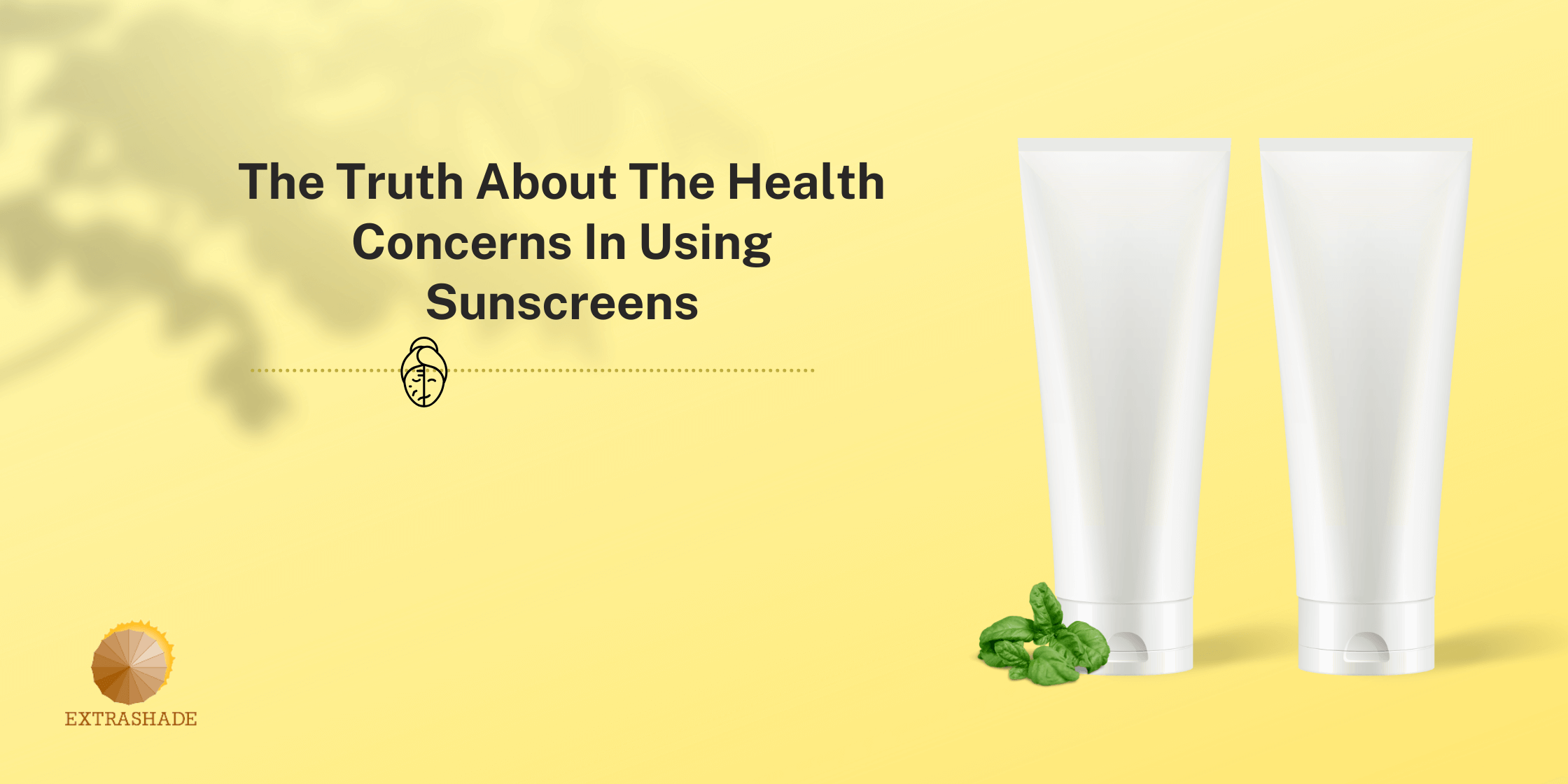Sunscreens are widely recommended as a crucial measure to protect against the harmful effects of ultraviolet (UV) radiation from the sun. They are designed to prevent sunburn, reduce the risk of skin cancer, and combat premature aging.
However, concerns about the safety of certain sunscreen ingredients have emerged, leading to confusion and apprehension among consumers.
This article aims to clarify these concerns by examining the evidence behind the health risks associated with sunscreen use.
Understanding Sunscreen Ingredients-The Truth About The Health Concerns In Using Sunscreens
Sunscreens typically contain either chemical filters, physical (mineral) filters, or a combination of both.
- Chemical Filters: These absorb UV radiation and include ingredients such as oxybenzone, avobenzone, octinoxate, and homosalate.
- Physical Filters: These reflect UV radiation and include zinc oxide and titanium dioxide.
Health Concerns: Chemical Filters
1. Oxybenzone
Oxybenzone has been a focal point of sunscreen safety debates. Concerns include its potential to act as an endocrine disruptor, meaning it could interfere with hormone functions. Studies have shown that oxybenzone can be absorbed through the skin and detected in the bloodstream, leading to fears about its long-term impact on human health.
However, the U.S. Food and Drug Administration (FDA) and other regulatory agencies have deemed oxybenzone safe for use at concentrations up to 6%.
2. Hormonal Effects
Research on animals has indicated that high doses of certain chemical filters, such as oxybenzone and octinoxate, may disrupt hormonal activity. However, these effects were observed at exposure levels significantly higher than what humans would typically encounter through sunscreen use.
The relevance of these findings to human health remains uncertain, and further research is necessary to draw definitive conclusions.
3. Skin Sensitivities and Allergies
Some individuals may experience skin reactions to chemical filters, such as rashes or irritation. This is often due to allergic reactions or sensitivities to specific ingredients. For those with sensitive skin, physical sunscreens containing zinc oxide or titanium dioxide may be a better option.
Health Concerns: Physical Filters
1. Nanoparticles
Physical sunscreens often use nanoparticles of zinc oxide or titanium dioxide to avoid the white cast associated with larger particles. There are concerns about the potential for these nanoparticles to penetrate the skin and cause cellular damage. However, current evidence suggests that nanoparticles remain on the skin’s surface and do not penetrate deeply enough to pose significant health risks.
2. Inhalation Risks
The inhalation of nanoparticles in spray or powder sunscreen formulations has raised concerns about lung damage. It is advisable to avoid inhaling these products and to use creams or lotions instead, especially for children.
Environmental Impact
Beyond human health, the environmental impact of sunscreen ingredients, particularly chemical filters, has garnered attention. Oxybenzone and octinoxate have been found to cause coral bleaching and harm marine life, leading to bans in some regions, such as Hawaii and parts of the Caribbean. This has prompted a push for “reef-safe” sunscreens that do not contain these harmful chemicals.
Regulatory Oversight and Safety
Regulatory agencies like the FDA, the European Commission, and Health Canada rigorously evaluate sunscreen ingredients for safety and efficacy. They set maximum allowable concentrations and require manufacturers to conduct extensive testing.
While some studies have raised potential health concerns, regulatory bodies generally agree that the benefits of using sunscreen outweigh the risks, provided the products are used as directed.
Conclusion
While there are valid concerns about certain sunscreen ingredients, the consensus among health experts is that the benefits of using sunscreen far outweigh the potential risks. Protecting the skin from UV radiation is crucial in preventing skin cancer, sunburn, and premature aging.
Consumers can mitigate potential risks by choosing sunscreens that meet their personal needs and preferences, such as opting for mineral sunscreens if they have sensitive skin or are concerned about chemical filters.
Additionally, staying informed about the latest research and regulatory updates can help individuals make more informed decisions about their sun protection strategies.

